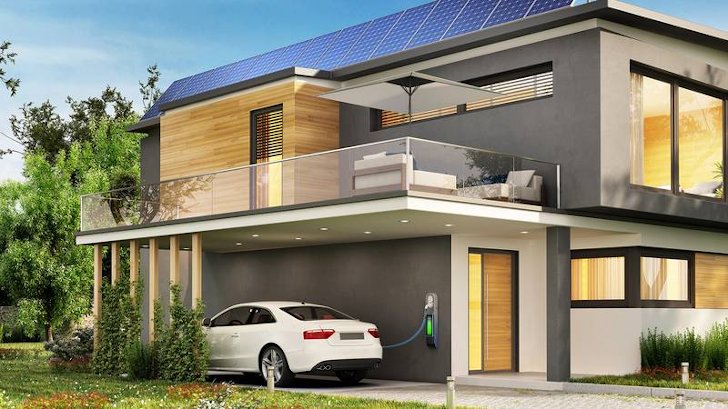Best Tips on Choosing the Right Solar Panel for Your Home
 Solar panels can supply a household with all the energy it needs. The project requires substantial investments, but they might be compensated in about 8-10 years.
Solar panels can supply a household with all the energy it needs. The project requires substantial investments, but they might be compensated in about 8-10 years.Considering an approximate amount of power, a household needs 4k Watt, namely, about a 13-piece 300 watt solar panel system. The average life of a solar panel is 25 years; so, after the pay-off period of 15 years, the energy the household consumes will be absolutely free of charge.
It’s a very rough calculation, and to have a more precise idea about how much you can save when you go solar, you should use solar system calculator.
Considering it is possible to sell the surplus of energy your solar system produces to the neighbors or power supply company, you can earn money with your solar panels. Imagine going on holiday in August and letting your house’s roof earn some money for you?
To make it happen, one has to look into the solar project installation carefully and choose the right solar panels that serve the needs!
5 Steps to Make the Right Choice
-
If you decide to choose solar panel 300 watt you need to consider the amount of energy your house consumes per month. The easiest way to do it is to check the power bill. But a more elaborated approach is to add up the capacity of all the appliances you need to work simultaneously. Decide if you want to go 100% interdependent from the power supply company or just save on power bills. If you want to go independent, you need to invest in batteries to accumulate energy. When choosing the number of solar panels, if you are neither planning to accumulate nor to sell energy, be careful not to overdo the number of the panels. Bear in mind that the capacity of a solar battery is what it produces under perfect conditions. If the day is gray, it will produce less.
-
Consider your roof’s:
-
size (to understand how many panels it can actually fit)
-
current condition (if it needs repair, what weight it can carry safely, etc.)
-
accessibility to the sunlight (the nearest house or a tree might make the solar system less efficient)
-
position toward the cardinal points (a roof overlooking south is preferable, but eastern and western roofs are also ok for solar panels placement)
Pay attention that some companies will require the insurance of the property to install solar panels.
-
Choose the material of the battery and the supplier. More and less expensive batteries differ according to their capacity, quality, and durability. If a guarantee doesn’t cover 25 years, try to find out why or better go for another supplier. A 25-year guarantee is a normal practice. If a selling company refuses to grant it, probably it has some doubts about the quality. Leasing solar batteries is an option, but the contract will probably be long-term and difficult to exit. There could be the possibility that you can’t invest the total amount immediately. But the price ought to be compared to the cost of a purchase.
-
By now, you can clearly see the cost of the project and the period in which your solar system will pay off and can compare the systems of different capacities and prices. To make a final decision, try to predict if you are planning to move to a new house within the period of pay off.
-
Check what compensations and incentives for moving to green energy are available for you. You might get about 30% of the system’s price back as a tax refund. You are ready to go and make the best choice now!
Apart from financial benefits, you might also be motivated to use solar energy to move to renewable sources of energy and, therefore, do better for the planet and the environment!

Breadcrumbs
Tags